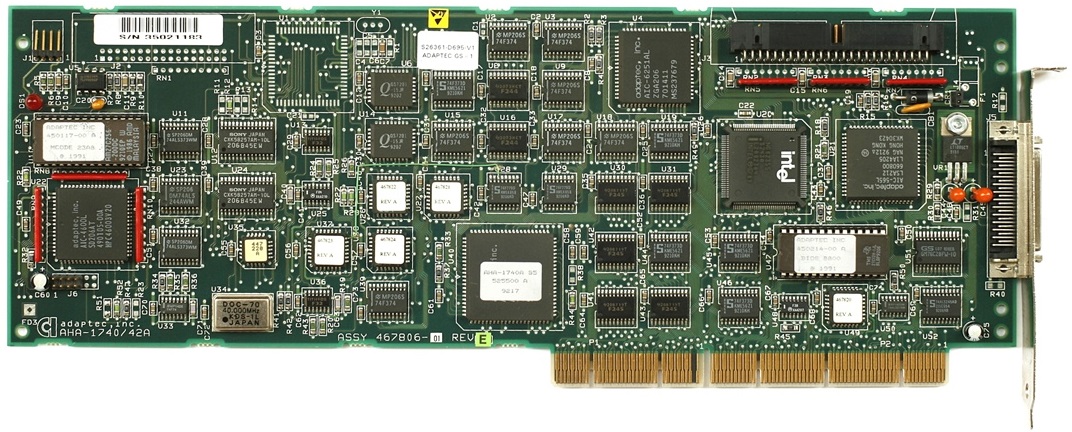
EISA Card

EISA Card
EISA and frequently pronounced "eee-suh" is a bus standard for IBM PC compatible computers. It eebuted in 1988 by a consortium of PC clone vendors as a counter to IBM's proprietary Micro Channel architecture (MCA) in its PS/2 series. EISA extends the AT bus, which the associated vendors retroactively renamed to the ISA bus. EISA cards can access to 4 GB of memory. EISA can accept older XT and ISA boards as the lines and slots for EISA are a superset of ISA.
EISA was somewhat expensive to implement, so it never became particularly popular in desktop PCs. However, it was reasonably successful in the server market, as it was better suited to bandwidth-intensive tasks (such as disk access and networking).
By the time there was a market need for a bus of capable of EISA speeds and capabilities for desktop computers, the VESA Local Bus and then the PCI filled this need and EISA was generally retired.